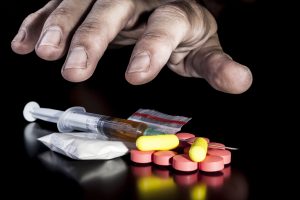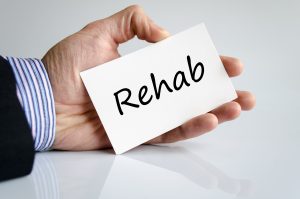I thought I knew exactly how my Ninth Step in AA would unfold. Instead, over a decade later, I’m still trying to make sense of people’s unpredictable reactions.
I heard about how sober people made amends long before I got sober. Somehow, the idea that alcoholics and addicts went around apologizing for their past misdeeds lodged itself in my psyche at a time when I had yet to say the Serenity Prayer.
 That doesn’t mean I understood the concept. For instance, if you’d asked me then if apologizing and making amends were the same thing, I’d have sworn that they were. I had no experience, yet, of making things right with someone I’d wronged—let alone making things right in a way that might stop me repeating whatever it was I’d done in the first place.
That doesn’t mean I understood the concept. For instance, if you’d asked me then if apologizing and making amends were the same thing, I’d have sworn that they were. I had no experience, yet, of making things right with someone I’d wronged—let alone making things right in a way that might stop me repeating whatever it was I’d done in the first place.
By the time I got to my Ninth Step, I’d picked up a few things. Probably the most important one was that I didn’t have to play the victim anymore. My Fourth and Fifth steps had showed me that I had played a major part in all my resentments—a realization that I found liberating. Steps Six, Seven and Eight had gotten me ready to make my amends. And while I was certainly nervous about getting started on what I then thought of as my apology tour, I was also excited.
I was promised miracles and they came—but never how or when I expected them.
I figured I’d knock out the “easy” ones first: one to Lauren and another to Peter, both former party pals. In each case I’d done something gossipy and mean-spirited but not atrocious, so I figured these amends would be simple. These people weren’t, after all, family members who were likely to make the experience traumatizing, or exes whom I dreaded to contact at all. They were just people I’d once spent a lot of time around but didn’t really have anything in common with anymore. Easy, right?
I called Lauren first (this was in the days before Caller ID or the demise of landlines):
“Lauren? Hey, it’s Anna.”
Long pause.
“Hey, Anna.”
“So listen. I’m calling because—“
“Oh, God, don’t tell me this is one of those ‘amends’ type of calls. I just—”
“Please let me—”
“Look, I heard you’re sober and that’s great. But this just isn’t something I’m up for.”
Click.
I sat there listening to the dial tone. In all the amends scenarios I’d mentally concocted, having someone—let alone the first person I reached out to—not be willing to hear what I had to say had never occurred to me. I’d read in the Big Book that we had to be willing to go to people we feared might throw us out of their offices, but I’d never read anything about how to handle the people who wouldn’t even take the call to set up the meeting. Still, what could I do—call her back, tell her it was about something else and sneak an amends in? My sponsor told me to move on, so I did.
To Peter. Who, well, never called me back. I didn’t realize he wasn’t ever planning to call me back until a week or so after I’d left a voicemail, when our mutual friend told me. “He doesn’t like to revisit the past,” the friend explained. “He said you don’t need to apologize for anything.”
This wasn’t how I’d imagined it going. I’d heard other people share about how they’d suddenly find themselves running into the very person they’d been planning to make amends to that day. Why was the opposite happening to me?
But I moved on. I had to. And I continued to find the process nothing like I expected it to be.
In general, it seemed like the people I thought weren’t going to be amenable to even meeting up welcomed me warmly. Those I thought would forgive me right away, meanwhile, were dismissive or indifferent. But one thing remained predictable: The amends that I was so terrified to make that I shook with terror or sobs at the thought were always the most rewarding of all.
Take, for instance, the ex I’d never gotten over. I called him up one evening when I was about five years sober and told him how sorry I was for destroying our relationship, for every cruel thing I’d uttered and each horrible mistake I’d made when we were together. But rather than lay into me as I expected, he said he was glad to hear from me, that it helped him make sense of his past, that he was happy I was sober and doing well. But, he added, I was blaming myself too much; he’d played just as big a part in what had gone wrong between us as I had. The conversation was more honest, painful and beautiful than any we’d had the entire time we lived together. I hung up feeling about 20 pounds lighter. I was finally free of an idea I hadn’t even realized I’d been clinging to—that I’d been a monster, and he my innocent victim.
Then there was the time I met up with a friend I’d known since I was 12 but had fallen out with in my twenties. We went on a hike and I told her how sorry I was for the way I’d behaved the last time we’d spoken, five or so years earlier. It turned out she was in a 12-step program too—so she actually made amends to me right after I made them to her. By the time we got to the bottom of the canyon, we’d re-launched our friendship—on new, healthier terms. Over a decade later, we talk nearly every day.
I was promised miracles and they came—but never how or when I expected them.
Take my financial amends. The first debt that I owed was to my college roommate, for the time I’d borrowed her car in sophomore year and then acted surprised when I saw the dent. I explained to her that I’d actually crashed into something when drunk and lied to her, and that I wanted to reimburse her for the damages. But she wouldn’t hear of it.
For my next financial amends, I decided to just go ahead and send a check. It was to a girl I’d lived with when I first moved to New York after college, a girl who’d moved out of our crappy, railroad-style place without notice one Thanksgiving weekend when I was out of town. It was a shitty thing to do, of course. But it didn’t make it right for me to charge up the phone bill in her name as high as I could, and then not respond when she asked me to reimburse her. So I tracked down her address and mailed a check and a card, apologizing for the phone bill as well as for being—well, the kind of roommate who would inspire someone to move out over Thanksgiving weekend without notice.
She sent the check back, along with a note that said, essentially, that she was doing very well, that she had a husband, five kids and a thriving career as a chiropractor, and that if I felt so bad about my behavior, then I should donate the money to a good cause since she didn’t need my charity.
Glenn was a guy who’d lock my cats away when I was out and call the landlord when I had friends from AA over, saying that he was “scared for his life” because there were “homeless alcoholics” around.
Like I said, not what I expected. But even that one allowed me to live with a little more freedom.
Some amends haven’t involved contacting people at all. Glenn, a gay guy I’d lived with the second time I’d moved to New York, when I was about seven years sober, had started off cool as could be but slowly revealed himself to be crazy—a guy who’d lock my cats away when I was out and call the landlord when I had friends from AA over, saying that he was “scared for his life” because there were “homeless alcoholics” around. (To say I’ve had bad luck with New York roommates would be an understatement.)
Though I ended up moving out and getting away from him entirely, I found myself still resenting him months later. I had done plenty wrong in our relationship, but trying to make amends to him was something I couldn’t imagine—not when he’d done things to me that I couldn’t imagine getting over. I decided to make a “living amends” by trying to be kind and gracious in my life—the opposite of how I’d been toward him at the end. But that didn’t stop me from resenting him. So, at my sponsor’s suggestion, I committed to praying for him for 90 days—specifically for him to get everything he wanted and for me to have empathy for the fact that he’d been doing the best he could. I did it for those three months, never feeling any differently about him but staying committed to the process because my sponsor kept asking me about it. I thought it was silly: I never felt any differently about Glenn.
Until the day, months after I’d stopped praying for him, that I met a guy who asked me if I knew anyone great to set him up with and I found myself answering, without thinking, “Yes! I know this amazing guy named Glenn.”
Glenn! As in: the guy I hated. Had hated, apparently.
Those days and weeks and months of asking an entity I didn’t even understand to give Glenn what he wanted had apparently granted me the empathy to see that he only hurt like that because of the pain he was in himself. And this had relieved me of my resentment, without me even realizing. It was surreal. (And no, I didn’t set the two guys up—I had no interest in ever talking to Glenn again—but the space he’d been taking up my head was cleared.)
I still do things I need to make amends for. Sometimes I make them right away and sometimes not for a long time. But I’ve found that time works in surprising ways when it comes to these things. Consider, for instance, what happened with Peter—the guy who wouldn’t call me back when I first started making my amends. Years had passed—so many years that he’d forgotten I’d ever said or done anything hurtful to him—when I ran into him one evening outside the gym. He told me that he’d just gotten an offer to sell a book of poetry, then asked if I’d be willing to look over the contract the publisher was asking him to sign.
I said I’d be happy to, and we met up a few days later, when I looked over his contract and gave him the best advice I could. Then I told him how sorry I was about the hurtful thing I’d done so many years before. I still remember how shocked his bright blue eyes looked when they jumped from the contract pages to meet mine. Then they filled with tears. Turns out, this thing I’d done that was “just” gossipy and mean-spirited had actually been something I needed to make right. And the guy who didn’t like to “revisit the past,” who’d told a friend I didn’t have to apologize for anything, ended up accepting my apology lovingly, giving me one more opportunity to chip away at the guilt and shame I didn’t want to walk around with anymore. He just hadn’t been able to do it on my time schedule.
Lauren has never surfaced. But that’s not to say that she won’t.







